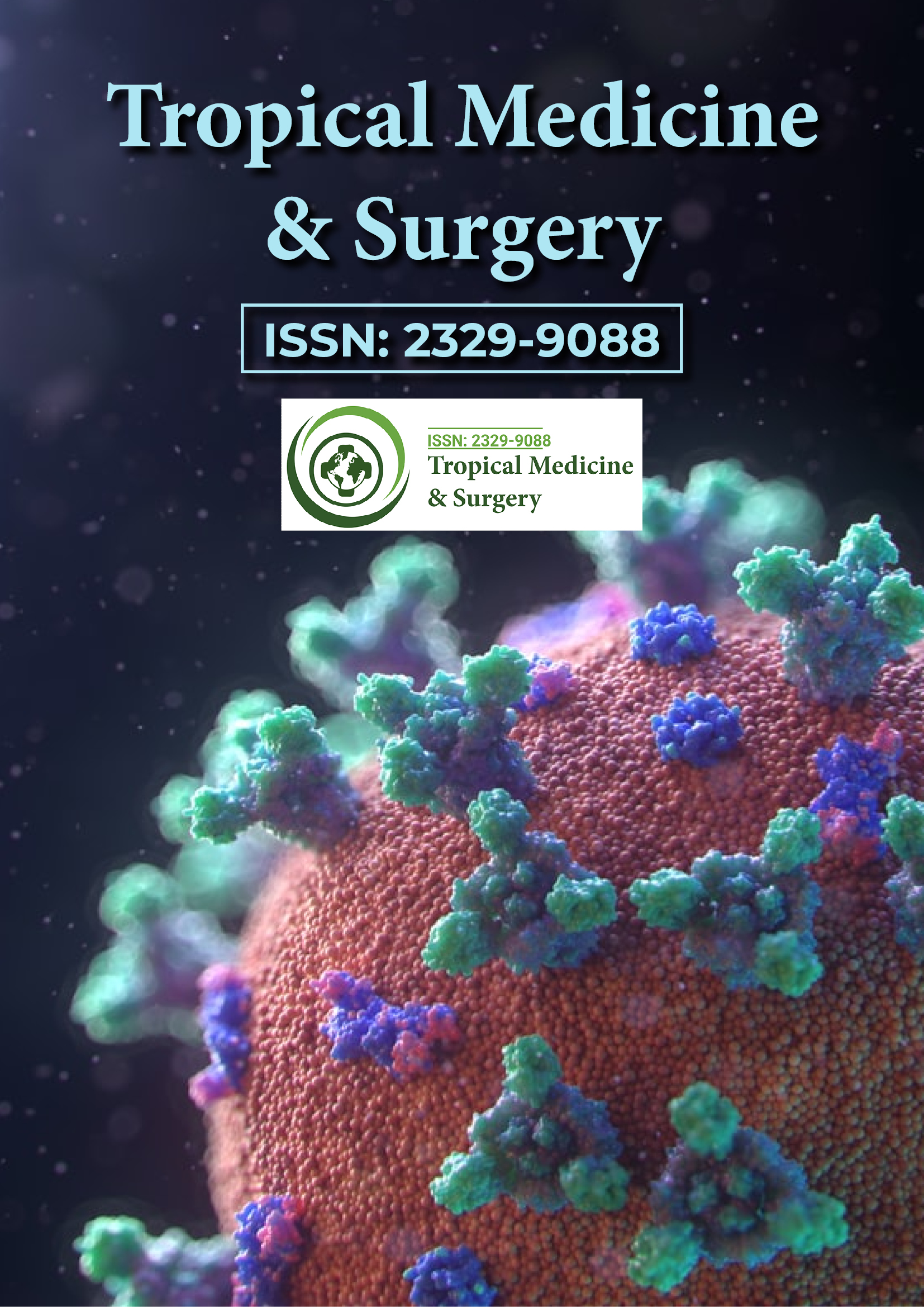Indexed In
- Open J Gate
- Academic Keys
- RefSeek
- Hamdard University
- EBSCO A-Z
- OCLC- WorldCat
- Publons
- Euro Pub
- Google Scholar
Useful Links
Share This Page
Journal Flyer

Open Access Journals
- Agri and Aquaculture
- Biochemistry
- Bioinformatics & Systems Biology
- Business & Management
- Chemistry
- Clinical Sciences
- Engineering
- Food & Nutrition
- General Science
- Genetics & Molecular Biology
- Immunology & Microbiology
- Medical Sciences
- Neuroscience & Psychology
- Nursing & Health Care
- Pharmaceutical Sciences
Commentary - (2021) Volume 9, Issue 3
Review on Tropical Medicine
Madhuri Kagana*Received: 02-Jul-2021 Published: 23-Jul-2021, DOI: 10.35248/2329-9088.21.9.237
Description
Tropical medicine is an interdisciplinary branch of medicine that deals with health issues that occur uniquely, are more widespread, or are more difficult to control in tropical and subtropical regions. Doctors in this field analyze and treat an assortment of infections and diseases. Most diseases they manage are endemic to the jungles. A couple of the most notable incorporate jungle fever, HIV/AIDS, and tuberculosis. They should be proficient in the 18 lesser known ignored tropical illnesses, which incorporate Chagas infection, rabies, and dengue. Helpless everyday environments in immature tropical nations have prompted a rising number of non-transferable sicknesses. These illnesses incorporate malignant growth and cardiovascular infection, which, previously, have been to a greater extent a concern in created nations. Doctors prepared in tropical medication should likewise be ready to analyze and treat these sicknesses.Preparing for doctors wishing to work in tropical medication shifts broadly over the various nations. They should contemplate the study of disease transmission, virology, parasitology, and measurements, just as the preparation expected of a normal MD. Exploration on tropical illnesses and how to treat them comes from both field examination and exploration focuses, including those of the military. Sir Patrick Manson is perceived as the dad of tropical medication. He established the London School of Hygiene and Tropical Medicine in 1899. He is credited with finding the vector by which elephantiasis was being passed to people. He learned it was a tiny nematode worm called filaria sanguinis hominis. He kept on examining this worm and its life cycle and decided the worms went through transformation inside female culex fatigans mosquitoes. Along these lines he found mosquitoes as a vector for elephantiasis. After this disclosure he teamed up with Ronald Ross to analyze the transmission of jungle fever through mosquito vector. His work with finding vectors as methods of transmission was basic in the establishing of tropical medication and our ebb and flow comprehension of numerous tropical infections.
Training
Training in tropical medicine is quite different between countries. Most physicians are trained at institutes of tropical medicine or incorporated into the training of infectious diseases. In the UK, if a doctor needs to represent considerable authority in tropical medication, they should initially prepare in everyday inward medication and get acknowledged into the Royal College of Physicians. They should at the same time study the claim to fame of irresistible infections while finishing a full-time course burden to accept their Diploma of Tropical Medicine and Hygiene. Their examinations are done at either the London or Liverpool schools of tropical medication. Also, they should go through two years at one of the UK habitats endorsed for tropical medication (situated in London, Liverpool, or Birmingham). Doctors in the UK who wish to be guaranteed in tropical medication should go through somewhere around a year abroad in a space lacking assets. Really at that time would they be able to become confirmed in tropical medication. The preparation of United States tropical specialists is comparable, however it's anything but a board perceived claim to fame in America. Doctors should initially finish clinical school and a program zeroing in on irresistible illnesses. Once finished, doctors can take the affirmation test from the American Society of Tropical Medicine and Hygiene to get the Certificate of Knowledge in Clinical Tropical Medicine and Travelers' Health.
Citation: kagana M (2021) Review on Tropical Medicine .Trop Med Surg. 9:237.
Copyright: © 2021 Kagana M. This is an open-access article distributed under the terms of the Creative Commons Attribution License, which permits unrestricted use, distribution, and reproduction in any medium, provided the original author and source are credited.
